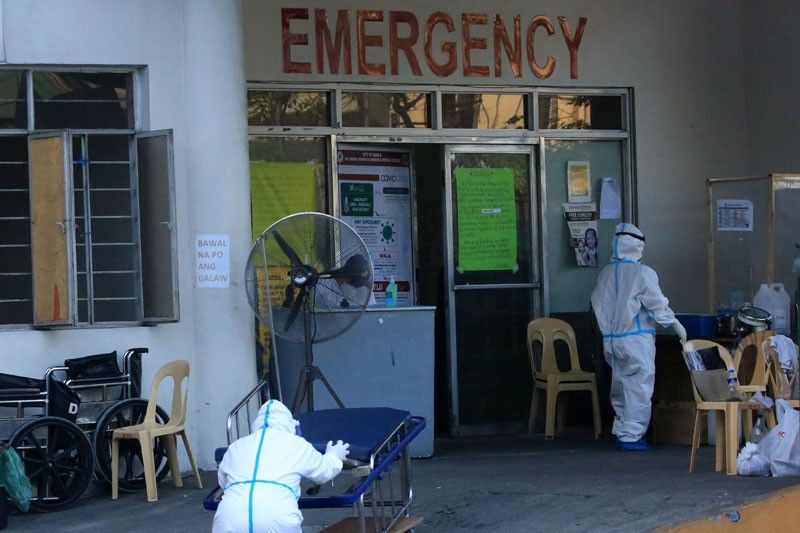Pandemic-stricken hospitals seek government relief

MANILA, Philippines — The coronavirus disease-2019 (COVID-19) pandemic is pushing some hospitals on the brink of financial collapse, prompting operators to seek government tax relief and complicating further the Philippines’ struggling outbreak response.
The Private Hospitals Association of the Philippines Inc., an industry group, is asking legislators at the Lower House for tax breaks and incentives to help struggling hospitals cope with the demands of the pandemic, Dr. Rustico Jimenez, the group’s president, said.
“They are submitting a letter to ask for tax incentives or tax holidays for healthcare facilities,” Dr. Jose Rene de Grano, PHAPi’s executive vice-president, said in a separate Viber message. No other details were released.
As the COVID-19 outbreak intensifies on its second month, underinvested hospitals in the country are finding themselves under extreme financial stress, forcing some to “downsize” while others halt operations “temporarily.” The most immediate victim are Level 1 hospitals or those found in the municipal or city level.
These hospitals accounted for 64% of the 1,223 hospitals in the Philippines as of 2016, the latest year on which official data is available. And while hospitals are prohibited to refuse patients, containing an infectious disease like COVID-19 in these facilities have become problematic.
“Most hospitals are downsizing, mainly skeleton force. The reason also is because we do not want to expose the employees to possible infection,” said another PHAPi source, who declined to be named because he is not authorized to speak on the matter.
“Somehow, that has lessened the overhead expenses, but hospitals have additional costs like PPEs (personal protective equipment), hazard pay, plus (there are) lower admissions now,” he added.
PhilHealth woes
Around 60% of hospital costs go to salaries of healthcare workers as well as utility expenses which all increased with the pandemic, according to Dr. Jose Santiago, president of the Philippine Medical Association, another industry group.
With costs rising, cash flows are also getting stretched. Patient numbers have declined in some hospitals as people try to avoid the contagion. To make matters worse, Santiago said the government has been delayed in remitting claims under the Philippine Health Insurance Corp. (PhilHealth).
Nearly 54% of hospital expenses were shouldered by Filipinos in 2018, but every Filipino is essentially a PhilHealth member and discounts offered by the state health insurer translates to claims for hospitals to charge the government. These PhilHealth claims serve as a crucial cash source for hospitals.
“Current average turnaround time in processing claims is 39 days. Based on our data, hospitals that claim that we owe them big amounts should reconcile their data with ours,” PhilHealth spokesperson Shirley Domingo said in a text message, without citing figures.
Such was the case of the University of Santo Tomas Hospital which was forced to apologize to PhilHealth last week after saying the agency owes it P180 million in unpaid claims. As it is, the PHAPi source said hospitals are scared to “antagonize” PhilHealth for fears they would not get paid.
“I heard a lot of hospitals having some difficulty in their operations with few number of patients plus the need to spend more at this time,” Santiago said.
Meanwhile, the cash crunch on some hospitals persists as the outbreak shows no sign of abating. Ronald Mendoza, dean of Ateneo School of Government, said it is time to extend state subsidies to hospitals, something the Duterte government is hesitant to grant airlines and travel agencies similarly asking for a rescue.
“The healthcare sector is our frontline agency against this. If support will be provided, it should really be first,” Mendoza said in an online exchange.
- Latest
- Trending





























